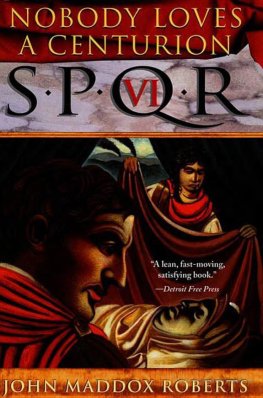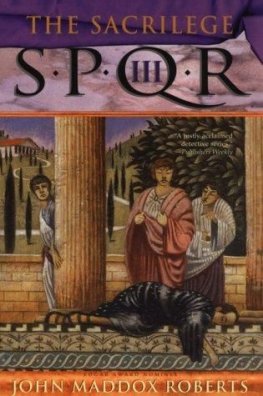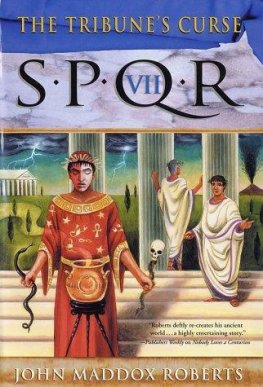John Roberts - Venus in Pearls
Here you can read online John Roberts - Venus in Pearls full text of the book (entire story) in english for free. Download pdf and epub, get meaning, cover and reviews about this ebook. genre: Detective and thriller. Description of the work, (preface) as well as reviews are available. Best literature library LitArk.com created for fans of good reading and offers a wide selection of genres:
Romance novel
Science fiction
Adventure
Detective
Science
History
Home and family
Prose
Art
Politics
Computer
Non-fiction
Religion
Business
Children
Humor
Choose a favorite category and find really read worthwhile books. Enjoy immersion in the world of imagination, feel the emotions of the characters or learn something new for yourself, make an fascinating discovery.

- Book:Venus in Pearls
- Author:
- Genre:
- Rating:4 / 5
- Favourites:Add to favourites
- Your mark:
- 80
- 1
- 2
- 3
- 4
- 5
Venus in Pearls: summary, description and annotation
We offer to read an annotation, description, summary or preface (depends on what the author of the book "Venus in Pearls" wrote himself). If you haven't found the necessary information about the book — write in the comments, we will try to find it.
Venus in Pearls — read online for free the complete book (whole text) full work
Below is the text of the book, divided by pages. System saving the place of the last page read, allows you to conveniently read the book "Venus in Pearls" online for free, without having to search again every time where you left off. Put a bookmark, and you can go to the page where you finished reading at any time.
Font size:
Interval:
Bookmark:
John Maddox Roberts
Venus in Pearls
There are worse things than being a dictator's flunky. Being a dictator's enemy is one of them. Thus, when Julius Caesar had a mission for me to perform, I was always more than happy to undertake it as long as it didn't mean killing anyone I really liked. Not that Caesar ever asked me to do anything so distasteful. It was just that, had he asked, I probably would have complied, within reason. There were a number of men in Rome I would not have minded putting from Caesar's path.
But Caesar was not vengeful, nor vindictive by the standards of the powerful and ambitious men of that time. Indeed, his death came about because he neglected to kill a few men he really should have.
Usually, though, he wanted me to do things suited to my peculiar talents. It always amused him to see how I solved the problems he set me. Then he would regale his dinner guests with a witty recounting of my deeds.
I was getting a reputation as Caesar's performing dog, but it was a reputation I could live with. Young Herod, Antipater's son, once quoted to me a prophet of his people who said that a living dog is better than a dead lion. At the time I thought this was a rather craven philosophy, but now that in old age I contemplate the dead lions of my past, I see the wisdom in those words.
Come to think of it, young Herod is now old Herod, a king in fullest command of his nation although a client of Rome, and sitting atop a whole heap of dead lions.
I received my orders at the end of a grueling senate meeting. These meetings were once leisurely affairs characterized by long, soporific speeches and attended only by those with nothing better to do, save when important issues occupied everyone's attention or at election time. This agreeable routine changed when Caesar took power. He had work for everybody, ambitious projects to accomplish and a whole empire to set in order after a destructive civil war. Not to mention that he had nearly doubled the size of that empire and the new territories had to be administered.
We kept our traveling kits packed in those days because you went to the Curia in the morning knowing that, before lunch, Caesar might dispatch you on an embassy to Parthia, or to Massilia to build a new aqueduct, or to Egypt to wheedle more grain from Cleopatra, or to take command of an army and go conquer India. And woe to the senator who failed to show up at the Curia without a good excuse. I witnessed the following incident personally.
We had taken our seats amid the usual buzz of conversation, which stilled when Caesar entered preceded by his twenty-four lictors. He seated himself in the curule chair and scanned the House. There were perhaps four hundred of us present that morning, the rest mostly absent with the legions or on foreign missions. Instantly Caesar knew that a man was missing. 'Where is Aulus Fimbria?" he demanded.
A friend of the man stood. "Caesar, Aulus Fimbria died in the night."
"Died?" Caesar said scornfully. "He was healthy enough yesterday."
"Nevertheless, Caesar, this very morning his widow told me that he had expired of some unknown ailment."
Caesar took a sharply pointed bronze stylus from the scribe who sat by him and handed it to a lictor. "Go to the house of Aulus Fimbria and poke him with this," he ordered. "If he twitches, haul him in here."
An hour later the lictor returned and reported that Fimbria was indeed dead. '"I'll let him off this time," Caesar muttered. The lesson was not lost on us.
But on this particular day all senators in residence were accounted for. Caesar spent the morning naming men to various commissions, instructing the senate concerning his foreign policy decisions, and generally behaving in the highhanded fashion that suited him so well. He got no argument. By that time the senate was made up of his supporters and his former enemies who were so relieved to be alive that they had to be restrained from voting him divine honors.
Toward the middle of the day, the traditional end of a senate session, I had escaped assignment to any committee or special duty and was looking forward to a late lunch and a leisurely bath, perhaps to be followed by a fine dinner at the home of a friend, possibly one of those recently returned exiles I hadn't seen in years. Caesar was famously magnanimous, and most of his former enemies were back home, only a few diehard Pompeians still holding out in remote corners of the empire. I was heading for the door with the others when this fond illusion was shattered.
"Decius Caecilius, attend me," Caesar said.
Uh-oh, I thought. He wants me for something unofficial. That's always a bad sign. I put on one of my best smiles and strode over to him.
"That is a singularly insincere smile," he noted.
"Nonetheless, I am informed that one must smile upon Caesar these days. It is said to be dangerous to appear too glum."
"Nonsense. I have a job for you, and you may frown and pout all you like while you carry it out."
"What sort of job?" I asked, resigned.
"A crime."
"Commit one or solve one?"
"Don't try my patience, Decius. The breastplate of pearls I gave to Venus has disappeared. I want you to find and retrieve it in time for my triumph."
"Pearls, Caesar?" I sighed.
"I'm afraid so." He grew conciliatory and put an arm around my shoulders. Presumably this semi-divine familiarity was supposed to reduce my humiliation. "Listen, Decius, I am fully aware that you are an ex-praetor qualified for high command and fit to govern an important province, and you shall do so soon. But," he gave my shoulders a comforting little squeeze, "your family's recent hostility toward me went beyond the merely politic. I can't very well shower you with honors before I've had a chance to properly reward my faithful supporters. Just be patient, and you'll soon be restored to the full honors of your birth and station. In the meantime, kindly go and find my pearls."
"Where were they last seen, Caesar?"
"Among my triumphal trophies. An image of the goddess will wear them at the head of the procession on the first day. You know where to look."
Indeed I did. The whole city knew of the preparations for Caesar's triumph. Since his return from Spain, where he had crushed Pompey's sons at Munda earlier that year, Caesar had been gathering the staggering loot to be displayed in his triumph in a field near the Circus Flaminius on the Field of Mars.
I took my leave of him and made my way thither. It wasn't a long walk. The senate was meeting that day in the Curia attached to Pompey's theater, which was handy to the Flaminius. This was because the ancient Curia Hostilia in the Forum was still in ruins, burned in the riots that followed the death of Clodius seven years previously. Also, it was customary for a general to remain outside the city proper until the day of his triumph. As dictator, Caesar could have dispensed with this ancient taboo, but he felt that as Pontifex Maximus he should observe it.
Perhaps these then-famous pearls deserve some explanation because the manner of their acquisition was so peculiar. When, in the course of his Gallic war, Caesar invaded the island of Britannia, his stated reason was to secure freshwater pearls, a product of that island, to make a breastplate for Venus Genetrix, the ancestress of his house. This was perhaps the silliest reason ever given for starting a war. I do not think we need to regard it seriously.
He did, however, get his pearls because he always got what he wanted, or at least that was what he claimed. Over whether they were truly freshwater pearls from Britannia there was some dispute. Some speculated that they might be common pearls from the East.
Not that pearls of any sort were exactly common. And about this time Romans had conceived a veritable passion for pearls. People paid the most extravagant sums for them. Caesar gave one said to be worth six million sesterces to Servilia, mother of his future assassin, Brutus.
Font size:
Interval:
Bookmark:
Similar books «Venus in Pearls»
Look at similar books to Venus in Pearls. We have selected literature similar in name and meaning in the hope of providing readers with more options to find new, interesting, not yet read works.
Discussion, reviews of the book Venus in Pearls and just readers' own opinions. Leave your comments, write what you think about the work, its meaning or the main characters. Specify what exactly you liked and what you didn't like, and why you think so.














